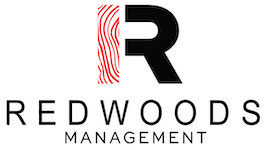
Tax Day is approaching, and there has been no news about it being postponed this year for Covid. So, like it or not, you’ll need to address the IRS come April 15th. You know you need your receipts to itemize deductions if you file independently. However, if you use a third-party financial service, you will still need to gather your receipts! Have you been keeping them? Umm… well, maybe you don’t need every single one. Here’s a little guidance on which of those little scraps of paper are more costly to lose and which ones are fine for the circular file.
Gross Receipts
When you own a business, you need to keep everything. But the documents that are most important for your tax records would be your gross receipts, which shows every way you have received money. Gross receipts include cash register tapes, deposit information from your financial institution, any books you keep with receipts, invoices, and 1099-MISC forms. If you can provide these to your tax filing service, the IRS will have an accurate idea of how much your business brings in, which is the first step in figuring out how much your business is worth (and should be paying in taxes.
Purchases
Did you make any significant purchases this year for your business? You need to keep that receipt on record. Invoices, credit card statements – whatever you have to verify these purchases will work when you file. If you are not self-employed, you should also save receipts for anything you bought for work.
Expenses
Certain expenses for business, such as travel, will require documentation. For your personal taxes, you will want to make sure you are saving receipts for the oh-so-expensive expenses of child care and medical needs.
Assets
For your business, be sure to have a record of major assets your company uses, such as machinery and overhead. Receipts for repair, insurance claims, and usage documentation can help determine the worth of what you have in terms of appreciation or depreciation.
Other Expenses
There are a few other financial items you need to look at for your filing that might not fit into the above categories. Basically, if it cost you a lot of money, it’s not a bad idea to see if it can be written off (with proper documentation). See what receipts you have for charitable donations or educational credits.
You might be sheepishly scratching your head because you don’t have all of those receipts listed above. It’s okay! Next year, DON’T THROW ANYTHING AWAY. Until then, the right business tax outsourcing service can get you the right refund. Get in touch with Debitda today!



